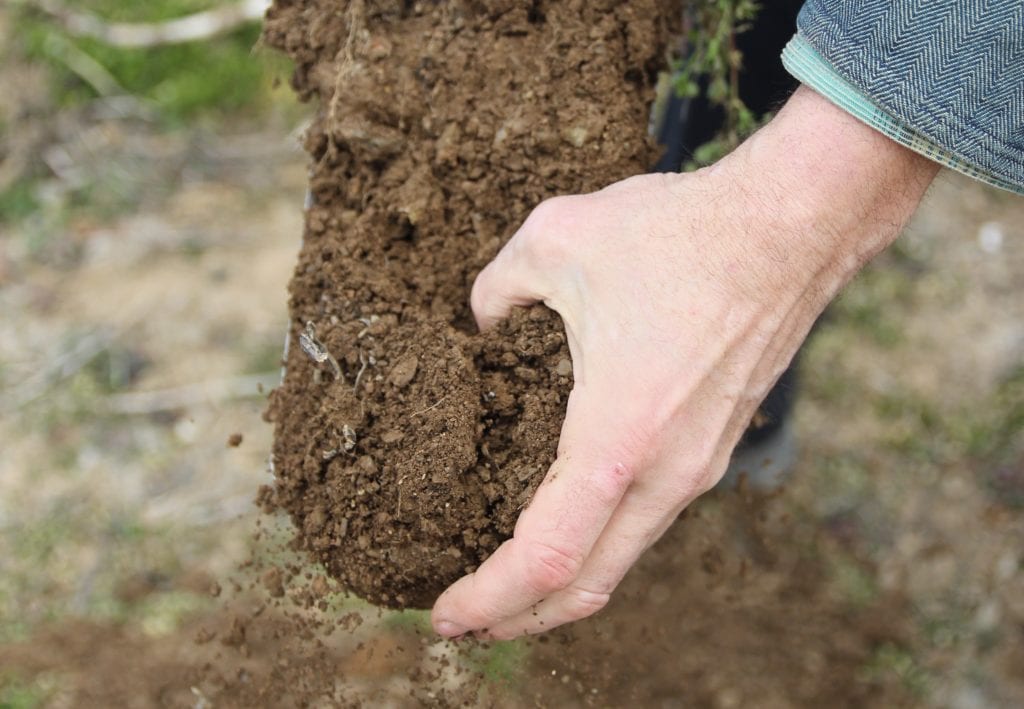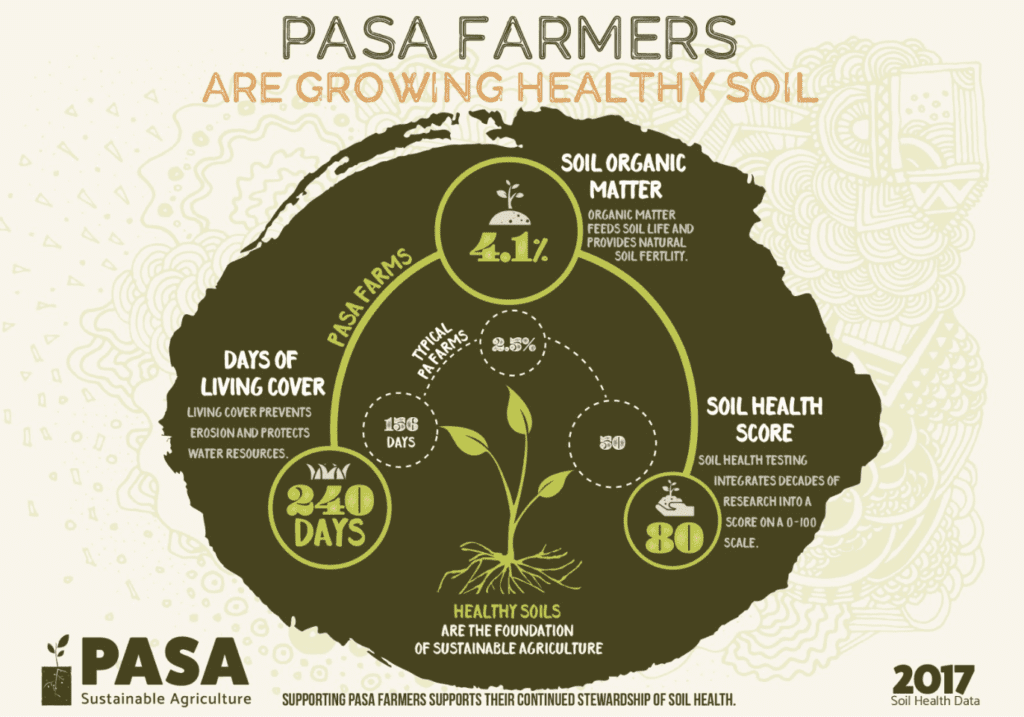
By Franklin Egan, Director of Education
Soil health is the foundation of productivity and profitability on any farm. While most farms regularly test their soils, it can be challenging to put results in a meaningful context. For instance, how do you understand what a “good” soil test result is for your farm, and how do you develop a practical strategy for improving soil health over the long term?
Last summer, the Pennsylvania Association for Sustainable Agriculture (PASA) began working with organic vegetable farmers to help answer these questions and chart a course for sustaining our soil resources for the future. PASA worked with twelve organic vegetable farmers across Pennsylvania to measure soil health in their fields and assess management practices that influence soil health. We submitted soil samples to the Cornell Comprehensive Assessment of Soil Health and gathered management records for tillage operations, planting dates, and soil amendments.
The data help to illustrate what is typical, and what is possible, for soil health on diversified organic vegetable farms in Pennsylvania (see table below). We found that, on average, PASA vegetable farmers:

These are very beneficial outcomes for our farms, neighbors, and the planet. Drawing on this data, PASA is working to tell the story of soil stewardship and help to expand the market and public support for organic vegetables. For instance, we’re developing a fact sheet that summarizes our research findings and concisely explains to a non-farmer why soil health is so important for ensuring healthy food and a healthy environment. PASA farmers can place these fact sheets on their farm market stands, add them to CSA boxes, or share them with a wholesale customer.
Our study will also provide a framework for organic farmers to share best practices and collaboratively develop new ideas for growing soil health. For instance, at a workshop this past March, Mike Brownback from Spiral Path Farm shared results from their PASA soil health assessment. Through forty years of farming organically, the Brownback’s have boosted their soil organic matter to impressive levels; in one field, we measured 5.1% soil organic matter, on a soil type that typically holds only 1.5%.
At the meeting, Mike stressed that building healthy soils requires a long-term commitment, with regular assessment as part of the process. He also described Spiral Path’s composting system, which he does not view primarily as a direct source of nutrients, but rather as a way to prime the soil microbiology and help plants access nutrients stored in soil organic matter. Mike also described that although Spiral Path does rely on pretty intensive tillage for weed control and terminating cover crops (often including multiple passes with a disc plow), they are very disciplined about tilling when soil moisture conditions are appropriate. By avoiding compacting wet soils with heavy equipment, they are able to use tillage while steadily increasing organic matter with healthy crops and cover crops.
PASA’s education staff is looking forward to helping farmers share the techniques and strategies they use to build soil health. You can join the discussion and learning at PASA’s 3rd annual Soil Health conference, Thursday September 28th, at Spiral Path Farm in Loysville, and at multiple workshops at our annual Farming for the Future Conference, February 7-10 in State College.
We are also expanding our study in 2017, and we welcome the participation of more farmers. Participants will receive subsidized Cornell Soil Health tests for three fields in October and should also be prepared to submit farm records for tillage, planting dates, and amendments to PASA in December. PASA will return a detailed assessment report, benchmarking your farm’s soil health relative to peer-farms, as well as compelling info-graphic fact sheets that you can use to tell your customers about soil health. Interested farmers should contact Franklin Egan before September 1, 2017: 814-349-9856 or franklin@pasafarming.org.
| SOIL HEALTH INDICATOR | PASA MEAN | MIN-MAX |
| Organic Matter, as measured in 2016 | 3.30% | 1.6-5.1 |
| Organic Matter, relative to rating for soil type1 | 2.3x | 1.4-3.8 |
| Days in Living Cover2 | 224 days | 138-320 |
| Cornell Soil Health Score3 | 70 | 54-84 |
| Tillage Intensity Index4 | 5 | 1.2-9 |
1 This value reflects the ratio of organic matter measured in 2016 to NRCS organic matter ratings for each farm’s soil type. Sampled farms had organic matter 2.3 times higher, on average, than NRCS ratings.
2 This indicator reflects area-weighted vegetative cover estimates for all crops and cover crops for the 2016 season.
3 The Cornell Soil Health Score incorporates twelve different measurements of soil physical, biological, and chemical properties into a 100-point scale. Scores of 60-80 are considered “excellent”; scores higher than 80 are considered “optimal”.
4 The tillage intensity index uses NRCS data to assign a soil disturbance score to each tillage or cultivation implement used in 2016. For example, a single moldboard plow pass gets a score of 1.0; a tine-weeder pass gets a 0.5. Higher scores indicate more frequent, extensive and/or deeper soil disturbance.